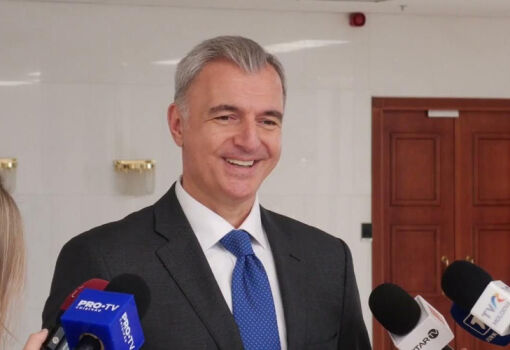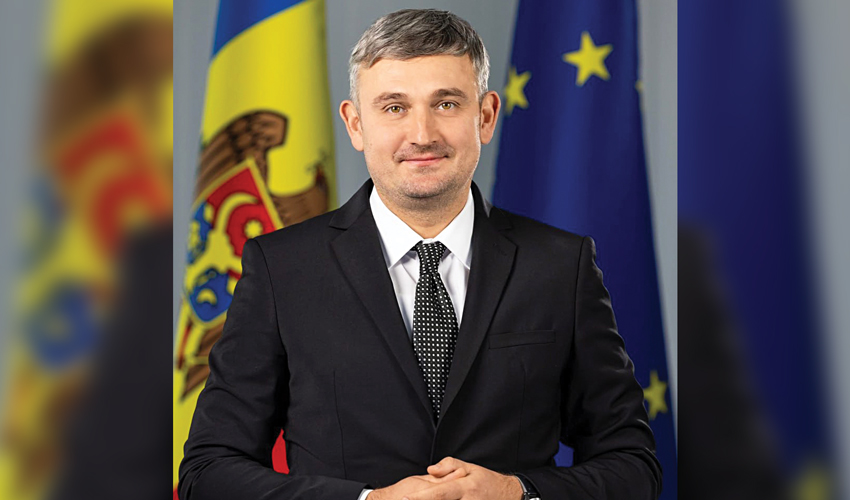
Corina Alexa, state secretary at the Finance Ministry, said that a tangible leap in the tax reform has been made over the last year. “Moldova shows consistent progress in the approximation of the tax policy with the EU norms: four acts have already been transposed this year, five more are planned to be transposed by the end of the year, and the remaining documents will be introduced in stages until 2026. In parallel, work is underway on both the excise and VAT segments, and the harmonization process itself requires analytics, constant evaluation and careful implementation. It is important to keep in mind the complexity of the regulations and their impact on the economy. Therefore, we are in a constant process of analysis: the tax policy is being restructured gradually, with a link to new priorities”.
The state secretary said that the main goal of the harmonization is to make the Moldovan system transparent, compatible with the European one and understandable for investors and taxpayers. This implies both technical changes in the administration mechanisms and adjustment of the rates.
The importance of a logical approach to the harmonization of excise duties was stressed by Dan Manolescu, former secretary of the Romanian Finance Ministry and president of the Romanian Chamber of Tax Consultants. He explained that this process usually consists of two parts. The first is the mechanisms and procedures, which must be fully compatible with the European ones at the time of accession. This is a strict requirement: national mechanisms cannot contradict the common European rules. The second part is to achieve minimum levels of rates on various taxes, including excise duties. Here too, negotiations are possible.
According to Manolescu, each country determines its initial quota even at the start, and the schedule for achieving the minimum European rate is discussed and agreed upon. “Romania once achieved such negotiations: it allowed to avoid shocks in the market and give business time to adapt,” the expert noted.
He emphasized that it is especially important to consider sensitive categories of goods, such as tobacco products. A sharp increase in excise taxes can cause a surge in smuggling and a significant decrease in budgetary collections. This is what happened in Romania in 2013, when raising the excise tax on tobacco too quickly led to a drop in revenues and a surge in the illicit market. This lesson, according to Manolescu, should be taken into account by Moldova when building its excise policy.
“Moldova can request from the EU an extension of the deadlines for reaching the minimum rates, especially for the most sensitive categories. This will allow the reform to be carried out gradually, preserving market stability and reducing risks for the budget. Such negotiations are a normal practice for EU accession countries and an important part of the preparation for integration.”
It should be noted that the issue of harmonization of excise duties and VAT has become the central issue in the Taxcon’25 discussions. For Moldova it has not only fiscal, but also strategic importance: the level of prices, business confidence and especially investors’ confidence depend on the correct adjustment of rates and mechanisms. Too sharp increase of excise duties always leads to the growth of illegal turnover and budget losses. If the process is overly prolonged, Moldova risks failing to meet the EU accession deadline and losing the trust of its partners. Therefore, finding a balance between these risks is the key task of the Ministry of Finance.
At the same time, the issue of fiscal efficiency and reduction of the shadow sector was raised. Alin Marius Andrieş, a professor at the Alexandru Ioan Cuza University and former secretary of the Romanian Finance Ministry, said that the high level of the shadow economy remains one of the main challenges for Moldova. He cited as an example the experience of Romania, where the country found itself in a situation of excessive budget deficit in 2019 and became the only EU state under the EU special procedure. One of the reasons was the huge VAT gap, which reached 30% of potential revenues in 2022. The reform included digitalization, increased transparency and a review of tax control methods. “As a result, we were able to improve tax collections and strengthen the financial system. Moldova can use these proven approaches and avoid mistakes to improve the efficiency of public spending and create the basis for sustainable growth,” he said.
The modernization of the administration mechanisms remains a hot topic. Thus, Forvis Mazars Romania partner Liviu Gheorghiu said that Moldova is only at the beginning of the path of digitalization of the tax system and implementation of transfer pricing rules. In the coming years, companies will have to prepare detailed reports on transfer prices and be ready for tax audits. To make this process transparent and reduce conflicts, businesses need to study international practices and prepare for the new requirements.
“Digital tools can not only simplify the interaction between business and the state, but also significantly reduce corruption risks,” Gheorghiu emphasized. – When the choice of companies to be inspected is made by a system rather than an inspector, it increases the trust of entrepreneurs and ensures a level playing field. Romanian experience shows that such transformation takes years, but its effect is obvious. At the same time, haste can lead to serious problems – this is what happened in Ukraine, where tax digitalization was launched too quickly. This caused errors and failures in the system, up to its stoppage”.
A separate issue is the creation of an attractive investment climate. Andrew Hill, Senior Tax and Competition Policy Advisor at AmCham EU, emphasized that overly complex or constantly changing rules discourage investors and raise costs. He cited the example of the EU, where the mechanism for controlling foreign subsidies requires significant resources and constant interaction between government agencies and business. If such measures are introduced without taking into account the impact on companies, they cease to be a development tool and turn into barriers. “Regulation should be proportionate to the objectives. It will strengthen investor confidence and make the economy predictable,” he said.
The current meeting between the regulator and business showed: the harmonization of the tax system is not a formal EU requirement, but a complex process on which the future of the Moldovan economy directly depends. Digitalization, transparency, dialogue with business and the ability to negotiate with Brussels on the timing and trajectory of changes are key factors. Decisions on VAT and excise duties should be verified and based on real data. This is the only way Moldova will be able to simultaneously fulfill its European obligations, reduce the shadow market and create a sustainable basis for a healthy economy.













